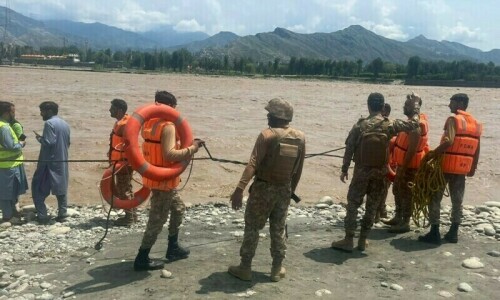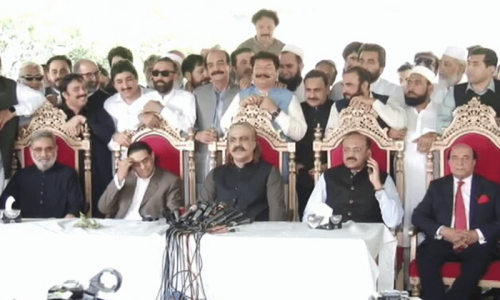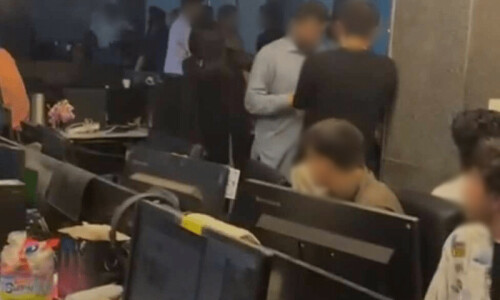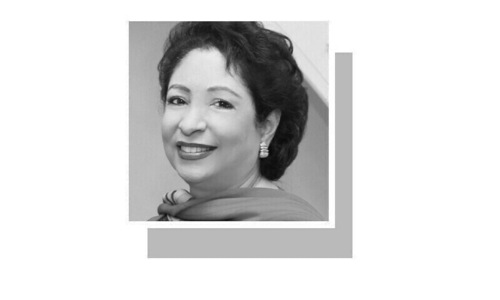WASHINGTON, March 29: The United States on Thursday rejected Saudi Arabia’s stand that Iraq was under an ‘illegitimate foreign occupation’ and said US troops were there at Iraq’s invitation, under a UN mandate.
Undersecretary of State Nicholas Burns, testifying before the Senate Foreign Relations Committee, acknowledged the administration was ‘a little surprised to see those remarks’ and would seek clarification from the Saudis.
King Abdullah surprised Washington on Wednesday by telling the Arab League summit in Riyadh: “In beloved Iraq, blood flows between brothers in the shadow of illegitimate foreign occupation and hateful sectarianism, threatening a civil war.”
On Thursday, the Saudi government stood by the king’s remarks.
Foreign Minister Saud al Faisal told a news conference at the end of the summit: “Did (Iraq) choose to have these forces? Had this been the case, it would have been a different matter. Any military intervention that is not at the request of the country concerned is the definition of occupation.”
King Abdullah was merely stating a fact, Prince Saud added.
Mr Burns’s statement came hours after the US Senate approved a bill tying funding for the war in Iraq to a timetable for withdrawing US troops, setting the stage for a bitter fight with President George Bush.
The measure, seeking to force a dramatic change in Washington’s Iraq policy, was approved by a vote essentially along party lines of 51 to 47.
The bill sets a mandatory start to a troop pullout within 120 days of its final passage, and a guideline of March 31, 2008, for the completion of the withdrawal of most US combat forces.
The cross-fire between Washington and Riyadh reflected growing differences between the two long-time allies at a time when the Saudis are taking on a greater leadership role in the Middle East.
Mr Burns said it was possible the king's comments might have been misinterpreted as a result of translation problems or could have been misreported by the media, but expressed confidence the episode would not disrupt cooperation between Washington and Riyadh.
Asked whether the United States was worried by King Abdullah's statement, State Department spokesman Sean McCormack said Washington was operating well within the boundaries of international law and under U.N. Security Council resolutions in Iraq.
“We want to understand what the thinking is behind it,” said Mr McCormack of the king's statement.
He said the United States had encouraged Saudi Arabia to increase its involvement in Iraq.
“It is not accurate to say that the United States is occupying Iraq,” said White House spokeswoman Dana Perino.
Ms Perino said the United States and Saudi Arabia had a close and cooperative relationship, but made clear the Bush administration did not agree with the king's statement.
“When it comes to the coalition forces being in Iraq, we are there under the U.N. Security Council resolutions and at the invitation of the Iraqi people,” she said.
Iraq's government was also concerned.
“We differ with his majesty (King Abdullah) on this ... This presence is sanctioned by the international community and Security Council resolutions and with consent and support of Iraqi people and Iraqi government,” Iraqi Foreign Minister Hoshiyar Zebari said in Riyadh.
“Nobody will gain anything by Iraq's failure. This attitude of simply being a spectator is not helpful,” Mr Zebari said.
The king's speech was only the latest sign of a split between Washington and Riyadh.
Last month, Saudi Arabia played host in Makkah to talks that led to an agreement between the hardline Hamas and the moderate Fatah to form a unity government to end Palestinian infighting.
The agreement caused problems for Washington because it enhanced the status of Hamas, which the Bush administration sees as a terrorist organisation.
—Agencies











































